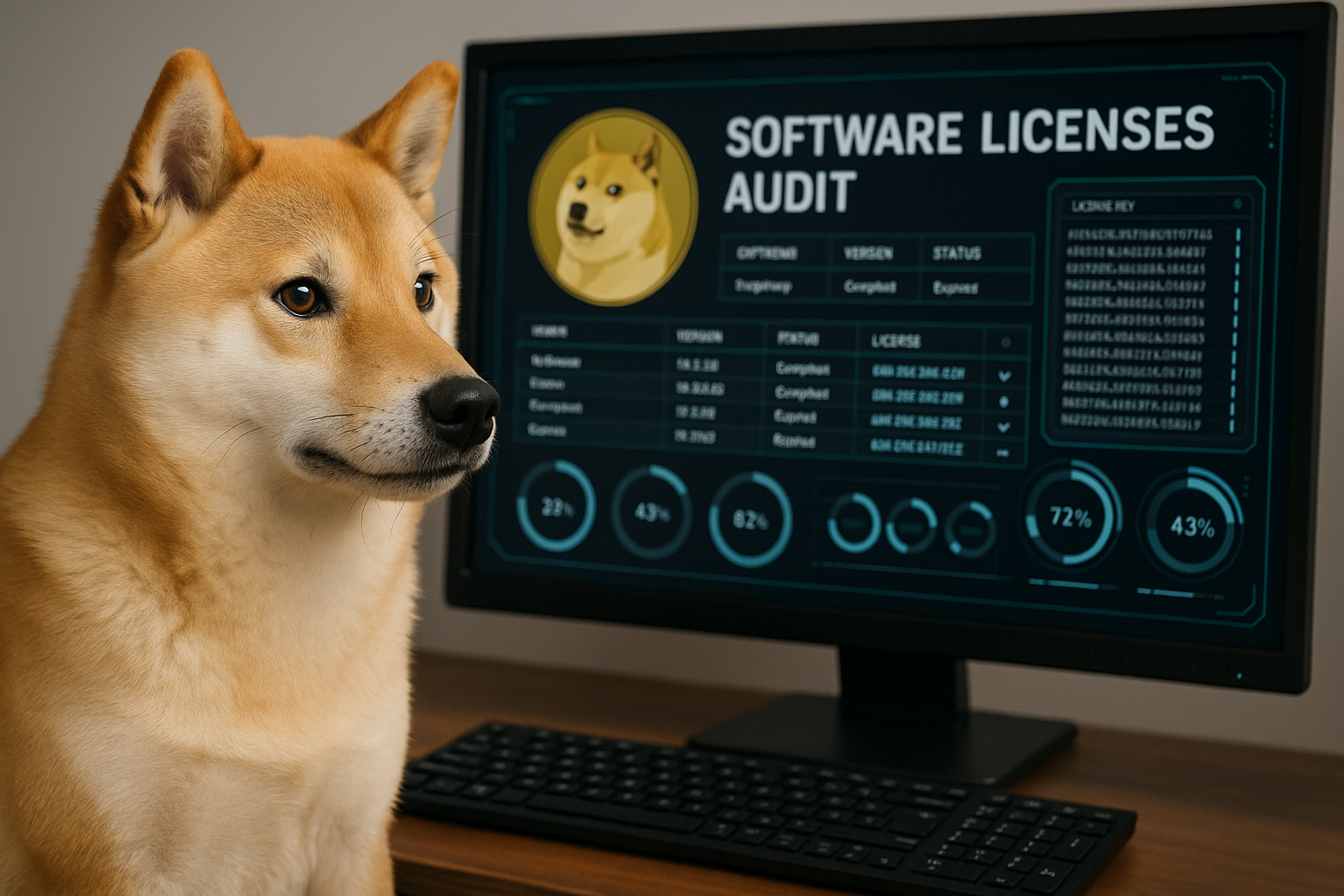Introduction
In today’s digital economy, software licensing is more than just paperwork—it’s a critical factor in ensuring compliance, reducing risks, and maintaining transparency. With the rise of platforms and auditing tools like Doge Software Licenses Audit HUD, businesses have an opportunity to streamline license management and stay ahead of regulatory requirements. This guide explores the concept of Doge Software Licenses Audit HUD, its importance in compliance, and how organizations can use it to gain valuable insights into their software usage.
Understanding Doge Software Licenses Audit HUD
The term Doge Software Licenses Audit HUD refers to a structured system or dashboard designed to track, analyze, and manage software licenses within an organization. HUD stands for Heads-Up Display, which in this context means an interactive interface that gives real-time visibility into license status, renewals, and compliance risks. By consolidating license information into one place, companies can make better decisions and prevent unnecessary legal or financial issues.
Why Software License Auditing Matters
Software licenses dictate how businesses can use proprietary applications. Non-compliance—whether intentional or accidental—can result in penalties, lawsuits, or reputational damage. Auditing tools like Doge Software Licenses Audit HUD help organizations:
- Identify License Gaps: Ensuring all software in use is properly licensed.
- Avoid Legal Penalties: Staying compliant with vendor agreements.
- Optimize Costs: Eliminating unused or redundant licenses.
- Strengthen Governance: Demonstrating accountability to stakeholders and regulators.
These reasons make license auditing a vital practice in any IT or business environment.
Features of Doge Software Licenses Audit HUD
The Doge Software Licenses Audit HUD offers several unique features that make it an effective solution:
- Centralized Dashboard: A single interface for tracking multiple licenses across vendors.
- Real-Time Monitoring: Live updates on license expiration, renewal, and usage status.
- Compliance Alerts: Notifications when licenses are near expiration or at risk of violation.
- Data Insights: Reports and analytics on license allocation and consumption.
- Audit Trails: Record-keeping functions that maintain historical compliance data for future audits.
These capabilities simplify what has traditionally been a complicated and time-consuming process.
How It Works in Practice
In practical terms, Doge Software Licenses Audit HUD integrates with an organization’s IT infrastructure to detect and log installed software. It then matches each installation with existing license agreements. The HUD provides a real-time overview of what software is active, how it is being used, and whether usage aligns with license terms. This visibility allows IT teams to correct discrepancies before they escalate into compliance violations.
Compliance and Risk Management
One of the biggest advantages of Doge Software Licenses Audit HUD is its role in compliance management. Software vendors often perform audits to check if clients are adhering to licensing rules. Without proper tracking, companies may unintentionally exceed usage limits or forget renewals, exposing themselves to fines. With the HUD system, compliance risks are minimized, and businesses can respond confidently to vendor inquiries.
Cost Optimization Benefits
Beyond compliance, the HUD also helps companies save money. Many organizations unknowingly pay for licenses they no longer use or maintain more subscriptions than necessary. Doge Software Licenses Audit HUD identifies underutilized software, allowing businesses to reallocate or cancel licenses. This optimization leads to better resource management and improved return on investment in software spending.
Insights for IT Decision-Making
Another strength of Doge Software Licenses Audit HUD is its ability to generate insights for strategic planning. By analyzing data trends, organizations can identify which software tools deliver the most value, which ones are underused, and where budget adjustments should be made. These insights help IT leaders make informed decisions about future technology investments.
Challenges in Software License Auditing
While Doge Software Licenses Audit HUD simplifies auditing, organizations may still face challenges:
- Complex License Models: Different vendors use varying terms, making standardization difficult.
- Shadow IT: Employees may install unapproved software that bypasses license management.
- Global Operations: Multinational businesses face additional complications with regional compliance laws.
- Data Accuracy: The HUD is only as reliable as the data it receives, requiring proper system integration.
Understanding these challenges allows businesses to prepare and maximize the effectiveness of their license auditing tools.
Best Practices for Using Doge Software Licenses Audit HUD
To get the most out of Doge Software Licenses Audit HUD, businesses should adopt a few best practices:
- Regular Monitoring: Review license data frequently to prevent compliance gaps.
- Employee Training: Educate staff on the importance of license compliance.
- Vendor Engagement: Maintain open communication with software providers to clarify terms.
- Policy Enforcement: Establish clear IT governance policies to manage software usage.
- Automated Alerts: Take advantage of built-in notifications to address issues promptly.
These practices ensure the HUD delivers maximum compliance and cost benefits.
The Role of HUD in Regulatory Compliance
Different industries face unique compliance requirements. For example, financial services, healthcare, and government organizations must adhere to strict IT governance laws. Doge Software Licenses Audit HUD supports these industries by providing documented proof of compliance, which can be crucial during internal or external audits. Its audit trail feature ensures that organizations have historical data readily available to demonstrate adherence to regulations.
Future of License Auditing Tools
As businesses adopt more cloud-based solutions, software licensing is becoming increasingly complex. Subscription-based models, multi-cloud environments, and SaaS platforms require flexible auditing tools. The future of Doge Software Licenses Audit HUD likely involves deeper integration with cloud services, more advanced analytics powered by AI, and predictive compliance features that identify risks before they occur.
Conclusion
The Doge Software Licenses Audit HUD is more than a compliance tool—it’s a strategic asset for businesses navigating the challenges of software licensing. By providing real-time visibility, actionable insights, and compliance safeguards, the HUD empowers organizations to reduce risks, optimize spending, and strengthen IT governance. While challenges such as complex license models and shadow IT remain, adopting best practices and leveraging the HUD’s features ensures that businesses stay ahead in the ever-evolving digital landscape. In the future, as licensing becomes even more dynamic, tools like Doge Software Licenses Audit HUD will remain essential for compliance and operational success.




